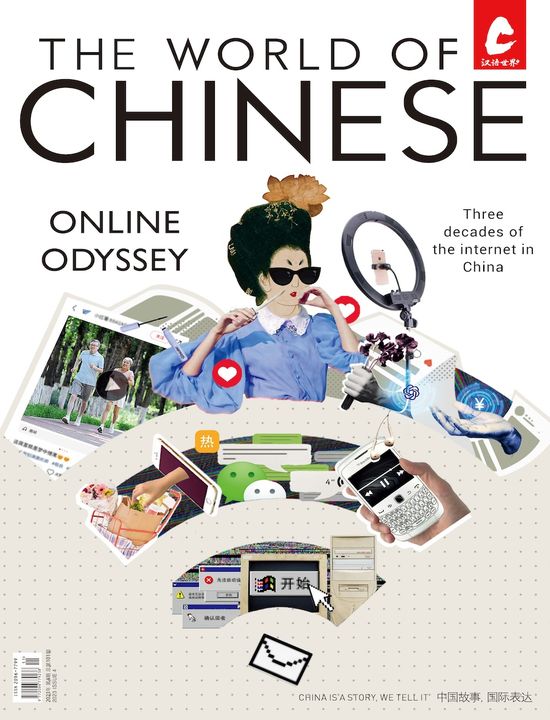Official and netizen-submitted nominations for 2018’s buzzword phrase of the year
It’s that time of year again. Soon, China’s language authorities will declare 2018’s hottest buzzwords and slang—“进博会 (World Import Expo)” and “板门店宣言 (the Panmunjom Declaration)”—while netizens react with confusion.
Chinese Pandian is annual contest organized by The Commercial Press, Tencent, and People.com, in conjunction with the National Language Resource Monitoring & Research Center. Each year, the Pandian seeks to nail down the year’s most widely used words, characters, and phrases from four categories—Domestic Word, Domestic Phrase, International Word, and International Phrase.
Official contenders (besides the two above examples) include “幸福都是奋斗出来的 (happiness comes from efforts),” “改革开放四十周年 (40th anniversary of reform and opening-up),” “宪法修正案 (constitutional amendment),” “港珠澳大桥 (Hong Kong-Zhuhai-Macau Bridge),” “平昌冬奥 (Olympic Winter Games in Pyeongchang),” “中非命运共同体 (a community of shared future for China and Africa),” “5G,” “正当防卫 (justifiable defense),” and “e-sports (电竞).” Of course, these are just the official contenders, and everyday speakers may have very different opinions on what constitutes the pandian of the year.
In 2017, the winners were “享” (share), “初心” (original aspiration), “智 (intelligent),” and “人类命运共同体” (a community of common destiny for mankind), so it’s not likely that this year’s contest will break any mold. Still, some haven’t given up hope—so here are some of the options netizens are still rooting for.
Skr
First used by pop star Kris Wu in The Rap of China, most viewers initially didn’t know what this word even meant (actually, they still don’t). As far as anyone can tell, it’s just Wu’s personal catchphrase and go-to compliment for rappers: “Your flow is so skr!”
Netizens have attempted their own definitions since: As skr sounds like a combination of two characters 死(sǐ, death) and 个 (gè, singular, unit), some use it to replace the two, in sentences such as “热skr人!(It’s hot as f**k!)”
锦鲤 Lucky Koi
This year saw a rise in lucky fish memes, a practice of forwarding photos of exceptionally fortunate individuals on social media for good luck, like a visual chain-mail. Notable koi include Leonardo DiCaprio, Produce 101 contestant Yang Chaoyue, Story of Yanxi Palace‘s “Mary Sue” protagonist Wei Yingluo, and 25-year-old Ma Huixian, winner of Alipay’s “Chinese Koi Lucky Draw.”
车闹 Bus Riot
The phenomenon of 医闹 (“hospital riot”), where angry patients and families threaten or inflict violence against medical staff for perceived malpractice or negligence, is already a problem for China’s troubled medical profession.
This year brought attention to “bus assaults,” in which disruptive passengers pick fights with drivers, often while the vehicle is still moving, due to missed stops or other grievances. One such case, in Chongqing in late October, ended with a driver careering off a bridge, killing himself and over a dozen passengers on board. People have called for better protection for drivers, as well as heavier penalties for unruly passengers.
凉凉 Cold cold
A popular song of the same name was released last year, as the theme to hit drama Eternal Love, but the word has been adapted to mean, well, “cold cold”—or something that is screwed up beyond repair, or FUBR, in English pandian. If someone or something has died, people will remark that “人都已经凉了” (the body is already cold) And what’s colder than cold? Cold cold, of course.
大猪蹄子 Big Pig Feet
Trotters are not only delicious, but, apparently, desirable (for students, at least, according to one principal in Quanzhou). This phrase, though, come from the hashtag “Men are all big pig’s feet”—that is, cads—which was tagged to news about various cheaters and chauvinists throughout the year. When rival dramas The Story of Yanxi Palace and Ruyi’s Royal Love in the Palace offered simultaneously harsh depictions of concubine life, for example, the Emperor Qianlong was crowned China’s latest pig’s foot.
Public nominations are open until December 3, so you can still go to People.com and offer your preferred jargon. At the awards ceremony on December 20, the committee will also announce the Top 10 “most popular words” and Top 10 “internet words,” so there’s a chance yet to see the these suggestions light up the big screen.












